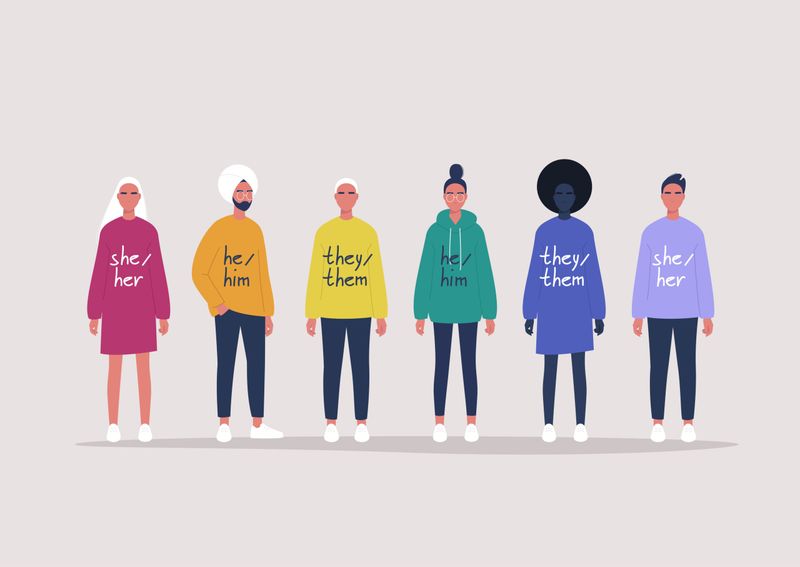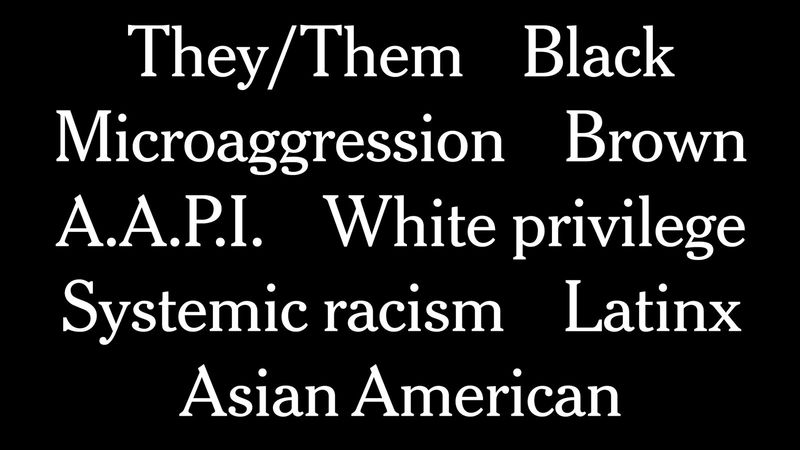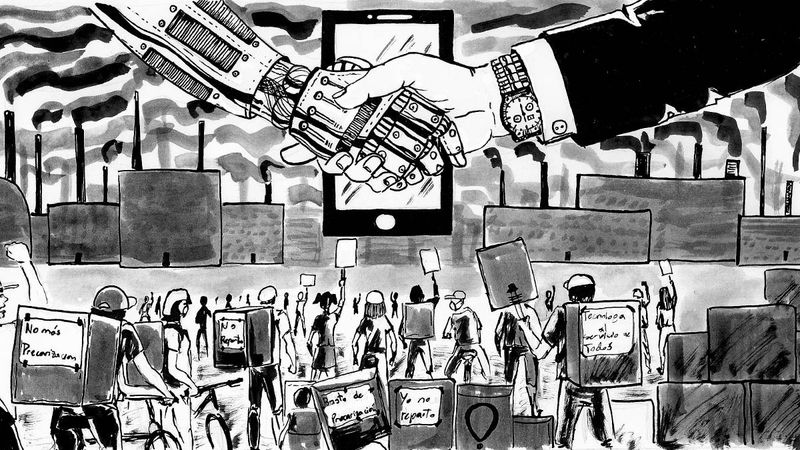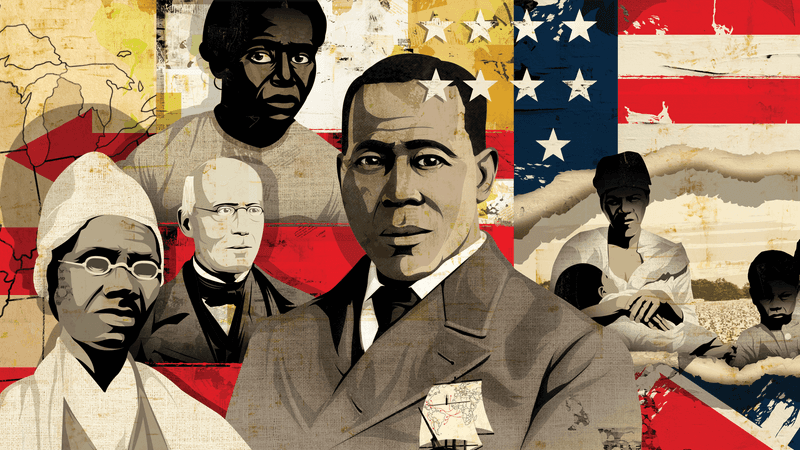Every generation has its triggers, and for many boomers, the modern “woke” world can feel like a nonstop culture shock.
From shifting language to dismantling long-held norms, Gen Z and millennials are challenging everything. And boomers? Well… they’ve got questions. And occasionally, rage.
Here are 17 “woke” concepts that tend to seriously infuriate boomers—even if there’s logic (and empathy) behind them.
1. Feelings Over Facts? Seriously?
Imagine growing up in a world where facts were king and emotions were considered a private affair. That’s the environment many boomers were raised in. Now, the idea that feelings could have a place in decision-making processes is enough to make them scratch their heads, or worse, roll their eyes.
For younger generations, emotions are not just fluffy add-ons but integral guides. They believe understanding how we feel can lead to better choices and healthier lives.
While boomers may see this as an abandonment of logic, many younger folks argue that acknowledging emotions can add depth and insight to otherwise cold, black-and-white facts. It’s not about choosing one over the other but about finding a balance. It’s a perspective shift that challenges the very foundation of how one interacts with the world.
And yes, this can be quite a head-scratcher for those set in their ways.
2. Who Needs the 40-Hour Workweek Anyway?
Picture a boomer sitting across their grandchild who’s talking about four-day workweeks and work-life balance. The boomer might think back to their own days of punching the clock from 9 to 5, five days a week, and wonder what this nonsense is about.
Younger generations have grown up valuing experiences and personal time just as much as their careers. They see the traditional 40-hour workweek as a relic from a different era, one that doesn’t necessarily fit into today’s digital, flexible world.
It’s not about laziness; it’s about valuing life outside of the office. This mindset can be puzzling to those who spent decades toiling away, believing that long hours equate to success.
By challenging the norm, younger folks are advocating for a more balanced life, and even though it might raise eyebrows, it’s a shift towards prioritizing well-being over constant grind.
3. The Grammar War: They/Them Pronouns
Grammar is a battlefield, and the introduction of they/them as singular pronouns is the latest skirmish. For boomers, trained in strict grammatical rules, this shift can seem like an affront to everything they learned in school.
But for many in the younger generations, using they/them is a matter of respect and identity. It’s not just a linguistic change; it’s a cultural one, acknowledging that gender is more complex than he or she.
The clash isn’t just about words; it’s about worldviews and respecting the ways people define themselves. While it might feel like a grammatical revolution to some, for others, it’s simply a way to be seen and understood.
Navigating this shift requires empathy and an open mind, something that can be challenging for those who have long adhered to traditional norms. It’s a learning curve, but one rooted in respect and inclusion.
4. Job Quitting as Self-Care
For many boomers, quitting a job without a backup plan sounds like madness. After all, they grew up in an era where job security was king, and leaving a stable position was almost unthinkable without another one in sight.
But today’s younger generations have brought mental health and self-care into the workplace conversation. They recognize the signs of burnout and prioritize their well-being over a paycheck.
This doesn’t mean they’re reckless; rather, they’re setting boundaries and valuing their mental health. It’s about finding a job that aligns with their values and doesn’t drain their spirit.
While boomers might see this as irresponsible, younger people view it as an act of self-preservation. It’s a different kind of courage, one that values the person over the position. And while it may seem radical, it’s a stance that’s gaining traction in a world increasingly aware of the toll work can take on health.
5. Living at Home: A Modern Reality
Moving out at 18 was once a rite of passage, but for many young adults today, staying at home well into their 20s or 30s is a norm—and it’s not just about home-cooked meals.
The economic landscape has shifted, with housing costs soaring and student debt looming large. Living at home can be a strategic, financially sound decision, even if it raises eyebrows among those who equate independence with having their own place.
Boomers might see this as a failure to launch, but for many young people, it’s a smart move that allows them to save money and build a future. It’s a practical choice rather than a sign of immaturity.
This generational divide over living arrangements is more than just about where you sleep; it’s about redefining what success and independence look like in a changing world. And sometimes, home is the best place to start.
6. Mind Your Words: The Power of Language
Words have always held power, but younger generations are taking this belief to new levels, emphasizing the impact of language and calling out microaggressions and tones that offend.
For boomers, this attention to seemingly small details might seem overly sensitive or even stifling. They grew up in a time where certain phrases were commonplace and rarely questioned.
However, for many young people, being mindful of language isn’t about censorship—it’s about fostering respect and understanding. They believe that words can harm or heal, and it’s important to choose them wisely.
This focus on language can feel like walking on eggshells for some, but it’s also a step towards creating a more inclusive society. It’s about recognizing that everyone deserves to feel safe and respected, even if it requires changing some long-held habits.
7. The Death of Gender Roles
Traditional gender roles are being questioned and, in many cases, dismantled. For boomers who grew up with clear expectations—men work, women manage the home—this shift can be confusing.
Younger generations are striving for equality and fairness, believing that abilities and interests should dictate roles, not gender. It’s about freedom to choose the life that suits you best, without the constraints of outdated stereotypes.
While some see this as chaos, others view it as progress, embracing the fluidity of modern relationships where both parties contribute in ways that make sense for them.
This movement towards egalitarian partnerships challenges the status quo and requires a rethinking of what it means to be a man or a woman today. It’s a revolution not just in the home, but in the very fabric of society, and while it may unsettle some, it also brings new opportunities for fairness and understanding.
8. Open Relationships: Rethinking Monogamy
Monogamy has long been the gold standard for relationships, and the idea of open relationships can seem downright scandalous to many boomers.
Younger generations, however, are questioning the one-size-fits-all approach to love and commitment. They’re exploring non-monogamous options, seeing them as valid and sometimes even healthier.
This isn’t about being disloyal or avoiding commitment; it’s about finding a relationship structure that allows for honesty and authenticity. For some, it means more communication and trust, not less.
While this concept can be shocking to those who grew up with “till death do us part” as their mantra, it’s part of a broader trend to redefine what love looks like in the modern world. Non-monogamy challenges old norms and opens up new possibilities for connection and fulfillment.
9. The Irony of Criticizing Capitalism
There’s nothing quite like a young activist railing against capitalism while texting on the latest smartphone to get a boomer’s blood boiling.
It’s a conundrum that older generations struggle to understand—how can you criticize a system while enjoying its fruits? For millennials and Gen Z, it’s about recognizing the flaws within capitalism and advocating for a more equitable system.
This generation doesn’t necessarily want to dismantle everything; they want to reform and build something better. They acknowledge the conveniences and advancements capitalism has provided, but also see the inequalities it perpetuates.
While boomers might see this as hypocritical, younger people argue that they’re simply asking for a fairer, more sustainable approach. It’s a complex issue, but one that highlights the generational divide in how we view progress and prosperity.
10. Accountability for Elders
Growing up, many boomers were taught to respect their elders, often without question. But today’s younger generations are more inclined to hold their elders accountable for their actions and words.
This doesn’t mean they’re disrespectful; rather, they believe that everyone, regardless of age, should be responsible for their impact on others.
For boomers, this can feel like an attack on long-held traditions and respect hierarchies. Yet, for younger people, it’s about fostering a culture of mutual respect and understanding.
It’s not easy to challenge those who came before us, but doing so can lead to more honest, open relationships. This shift towards accountability encourages growth for all generations, even if it’s a bit uncomfortable at first.
It’s a conversation that requires empathy but also courage, as it navigates the fine line between respect and responsibility.
11. Therapy Talk: A New Language
The casual use of therapy language in everyday conversation is a new phenomenon that leaves many boomers perplexed. Phrases like “I feel triggered” or “I need to set boundaries” are more common now than ever.
Younger generations have embraced mental health awareness, integrating psychological vocabulary into their daily lives. They see it as a means of expressing themselves and navigating complex emotions.
For boomers, who might have been taught to keep their feelings to themselves and “tough it out,” this openness can seem unnecessary or even indulgent.
Yet, this new way of communicating has fostered deeper connections and understanding. It encourages honesty and vulnerability, pushing against the stoicism that many were brought up with.
While it can seem foreign and even excessive, this therapy-inspired language is helping many to articulate their experiences more clearly and find common ground with others.
12. Celebrating Diverse Identities
Queer, neurodivergent, and nonbinary identities are now celebrated rather than hidden, a shift that can be both inspiring and startling for boomers.
For younger generations, the freedom to express and embrace these identities is a fundamental right. They’ve grown up in a world where diversity is celebrated, and acceptance is the norm.
Boomers, however, might remember a time when such topics were considered private or taboo. The open celebration of these identities challenges traditional views and societal norms.
This transformation is more than just acceptance; it’s about building a society where everyone can be their true selves without fear.
For those who’ve seen decades of change, this openness might be unexpected, but it’s a testament to the progress and resilience of those who fought for these rights. It’s a colorful, vibrant evolution of society that offers both challenges and opportunities for understanding.
13. The Battle Over Tradition
Tradition holds a special place in many hearts, especially for boomers who’ve carried on customs passed down through generations. But younger people are questioning these traditions, sometimes opting to leave them behind.
This clash is more than just about turkey dinners or holiday rituals; it’s about redefining what rituals and customs mean in an ever-changing world.
For boomers, changing traditions can feel like losing a piece of their identity. Yet for younger generations, it’s about creating new traditions that reflect their values and lifestyles.
This isn’t a rejection of the past; it’s an adaptation for the future. It’s about finding meaning and relevance in practices, ensuring they fit the lives people lead today.
While it might cause friction, this evolution of tradition is a way for each generation to make its mark, blending the old with the new in a dance of culture and identity.
14. Demanding Change, Like, Yesterday
Patience is a virtue—or so the saying goes. But for many young activists, waiting for change feels like a luxury they can’t afford. They’re demanding progress and action, calling for immediate solutions to issues like climate change and social justice.
Boomers often preach patience and gradual progress, but younger generations see the urgency of their causes and the need for swift action.
This tension highlights different approaches to problem-solving: measured, incremental change versus rapid transformation.
While it might seem rash to some, these demands are driven by a sense of responsibility and urgency. Younger people are deeply aware of the ticking clock on many global issues.
This generational push for rapid change reflects a desire to create a better world, even if it means shaking things up and challenging the status quo.
15. Chasing Meaning, Not Just Money
The pursuit of money as the primary career goal is losing its shine for many young people, who are prioritizing meaning and fulfillment over a fat paycheck.
Boomers, who often worked tirelessly for financial stability, might see this as naive or unrealistic. But for millennials and Gen Z, work is about more than just making ends meet.
They’re seeking careers that align with their values, offering more than just financial rewards. This shift towards meaningful work reflects a desire for purpose and personal growth.
It’s not that they’re rejecting success; they’re redefining it. This approach may seem foreign to those who equated hard work with a stable, comfortable life, but it’s a sign of changing priorities.
In a world where work-life balance and personal satisfaction are increasingly important, chasing meaning is becoming a new kind of success story, even if it baffles traditional thinkers.
16. Revisiting History: The Whole Story
History is being rewritten—or more accurately, completed. Younger generations are diving into the complexities and hard truths of the past, seeking to include voices and stories that were long overlooked.
For boomers, this can feel like an erasure of what they learned, a challenge to the narratives they’ve lived by.
But for younger people, it’s about honesty and inclusivity, ensuring that history reflects the experiences of all people, not just the victors or those in power.
This commitment to telling the whole story is about justice and understanding, a way to learn from the past and create a more equitable future.
It requires an openness to change and a willingness to question long-held beliefs. While it might unsettle some, it’s a necessary step towards a more complete and truthful understanding of where we come from.
17. Saying No to Tradition
Marriage, kids, a house with a white picket fence—these were once the markers of a successful life, but for many young people today, they’re options, not necessities.
Boomers might struggle to understand why younger generations are saying “no” to these traditional paths, opting instead for experiences and personal growth.
It’s not about rejecting these choices entirely but about having the freedom to decide what works best for their lives.
For some, this means traveling the world, pursuing passions, or simply living life on their terms. It’s a shift towards personal fulfillment over societal expectations.
While it can be unsettling for those who’ve followed a conventional path, this new approach is about authenticity and self-discovery.
It’s a bold step towards living a life that truly resonates with who they are, even if it means breaking away from tradition.


















